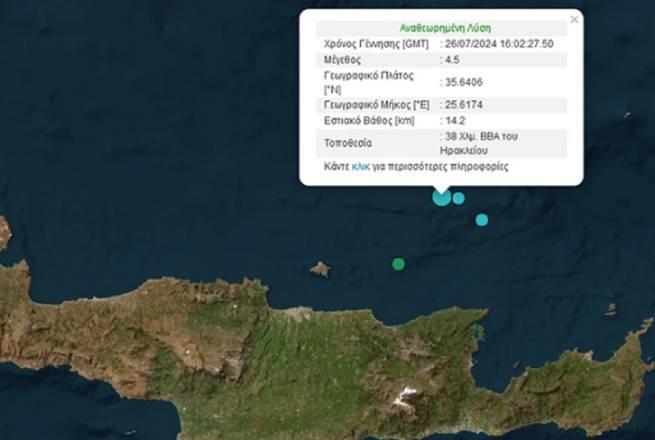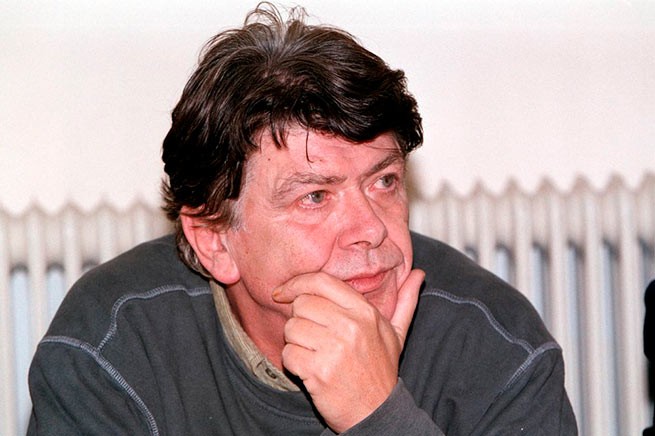Uncompromising, innovative, sensitive and militant at the same time, Moutsis, like no other, contributed to the formation of what we call “modern Greek song,” as in.gr wrote in his obituary.
Demos Moutsis
It is enough to listen to the first notes of the orchestral introduction to “Άγριο Φεβρουάριο” to understand how original and important, as well as decisive for the development of modern Greek music, was Demos Moutsis. This album, the incredible meeting between Moutsis, the lyrics of Manos Eleftheriou and the amazing performances of the young Dimitris Mitropanos and Petri Salpeas, is reason enough to forever secure Moutsis a special place. A modern and popular album that remains fresh 53 years later.
After all, it was this special talent and originality that was noted by Manos Hatzidakis when he commissioned the young Moutsis to orchestrate this special “Return” in 1970. But Moutsis himself will soon show that “Άγριο Φεβρουάριο” was not an accident.
His 1972 album Settlement A showcased his amazing ability to write beautiful folk songs and also gave Vicki Moscholiou some of her best performances. In 1975’s Tetralogy, he shows what it means to artfully present music that can sound both innovative and popular. In 1981’s The Dam, his meeting with Costas Tripolitis and Sotiria Below also writes the soundscape of a postapolitan in transition. But later, when he chooses his own path as a songwriter, starting with “Na!”, leaving behind the search for originality in the instrumentation, he again proves his unique ability to write songs with a unique sensitivity.
Demos Moutsis, who has died aged 86, was, simply put, one of the men who created the soundscape of modern Greece. One has only to remember how many songs we sang and imprinted in our memory – from “White, Red, Yellow, Blue” with Moscholiou’s perfectly balanced interpretation to the shocking rasp in Below’s voice in “You don’t say a word.”
The Great Journey – collaboration with Nikos Gatsos and Manos Hadjidakis
His creative journey began in 1967, when Nikos Gatsos began giving him his texts. The first song of Dimos Moutsis was “Βρέχει ο Θεός” performed by Stamatis Kokotas.
The collaboration between Gatsos and Moutsis continued with songs such as “Μην μου χτυπάς τα μεσάνυχτα την πόρτα”, “Pireotissa” with the same singer, “I saw you in my eyes” (Σ΄ έβλεπ α στα μάτια) with Vicky Moscholiou.
In 1969 with the song “Αύριο πάλι” (Tomorrow again) performed by Grigoris Bitikotsis, “Με ένα παράπονο” (With a complaint) with Bitikotsis and newcomer Manolis Mitsias. In 1970, Manos Hadjidakis entrusted Moutsis with the orchestration and musical direction of his songs in the album “Επιστροφή”.
All songs were written by Nikos Gatsos and performed by Grigoris Bitikotsis and then-new artist Dimitra Galani. This album included Hatzidakis’ songs “Μίλησε μου”, “Φιλντισένιο καραβάκι”, “Η πίκρα σήμερα” arranged by Moutsis.
From the album “Αυτά τα χέρια” and “Στην Ελευσίνα μια φορά”
At the same time, Mutsis continued to write hits such as Αυτά τα χέρια (These hands) to the words of Lefteris Papadopoulos and “Στην Ελευσίνα μια φορά” (Once Upon a Time in Elefsina) to words by Vassilis Andreopoulos with Manolis Mitsias.
An important milestone in his career was the album “Άγιος Φεβρουάριος”, recorded at the end of 1971 and released in early 1972. Manos Eleftheriou wrote the lyrics and Dimitris Mitropanos and Petri Salpea performed them.
A very important work that left a stamp on this entire first period, even opening with this work, as it turned out in retrospect, new paths in Greek discography.
In the album “Άγιος Φεβρουάριος”, in addition to the song of the same name, the following stand out: “Κι αν φταίει κανείς”, “Το σπίτι στην ανηφοριά”, “Η σούστα πήγαινε μπροστά”, “Άλλος για Χίο τράβηξε” and others.
It was followed in 1972 by the song “Συνοικισμός Α” with lyrics by Yiannis Logothetis (who also had the pseudonym Yiannis Michaelides), Gatsos, Eleftheriou and Varvara Tsibulis. The performers were Antonis Kalogiannis and Vicki Moscholiou, whose songs became hits, such as “Άσπρα, κόκκινα, κίτρινα, μπλε”, “Έτσι είν’ η ζωή” with Vicki Moscholiou, “Στο παράθυρο αγναντεύοντας” with Kalogiannis, popular orchestral “Ο χορός της λεβεντιάς”, etc. In 1973, “Στροφές” was released, another popular and very melodic album by Dimos Muchis with Vicky Moscholiou as the only performer and lyrics by Pythagoras, Logothetis, Eleftheriou and Gatsos. “Αγκαλιά και πλάι πλάι”, “Και γειά χαρά”, “Μια βραδιά στη Λάρισα”, “Εγώ είμ’ εγώ” and “ “Στους μπαξέδες” dedicated to the memory of Marco Vamvakaris.
“Μαρτυρίες” and junta censorship
In 1974, during the post-independence period, the album “Μαρτυρίες“, which included songs by Moutsis, cut by the junta’s censorship, with lyrics by Manos Eleftheriou, Yiannis Logothetis, Giorgos Chronas, Varvara Tsiboulis and the composer himself, performed by Manolis Mitsius, Vasiliki Lavina, in one of her first recordings, and Christos Lettonos.
In 1975, he released “Τετραλογία”, an innovative cycle of poetry set to music based on poems by K.P. Cavafy, Costas Karyotakis, Giorgos Seferis and Yiannis Ritsos, with Manolis Mitsias, Christos Lyttonos and the first singer Alkisti Protopsaltis.
In 1976 “Εργατική συμφωνία”, music from the play “Strike” by Giorgos Skourtis. In 1979, Dromologio was released, based on texts by Nikos Gatsos and performed by Manolis Mitsias.
In “Δρομολόγιο” songs stand out such as “Σαν τον Τσε Γκεβάρα”, “Μακρυνή της αγάπης ώρα”, “Ελλάδα Ελλά δα”, “Στ΄ Αγιον Όρος”, etc.
You don’t say a word and you have a special relationship with Bello
In 1981 he released the album “Φράγμα” with lyrics by Kostas Tripolitis, with songs such as: “Δε λες κουβέντα”, “Delenda est (Ερηνούλα μου)”, “Γράμμα από τη λ εγεώνα των ξένων”, “Νταλίκα” κλπ. etc. The folk songs of the album were sung by the great rebbe Sotiria Below, and Demos Moutsis sang only the chorus of the famous “Δε λες κουβέντα”.
The album’s electric ballads were performed by the composer himself. At the same work, Demos Moutsis sang “Κουβεντούλες με τον Φρόιντ” together with Loukianos Kilaydonis and Alkisti Protopsaltis.
In 1983, with the song “Ενέχυρο”, he opened a lonely path.
In 1987, the album “Να!” was released, which included his famous songs “Το όνειρο” and “Μια φυσαρμόνικα που κλαίει”. In 1990, “Ταξιδιώτης του παντός” with Nana Mouskouri, which became the last album he wrote for another artist other than himself. In 1994 he returned with the album “Για Πούλημα Λοιπόν!”, again with his lyrics and performance.
Collaboration with Dimitris Mitropanos and Dimitra Galani
In 1999, Demos Moutsis collaborated again with Dimitris Mitropanos and Dimitra Galani in a large concert in Irodesion, in which they sang together old and new hits of the great creator. The long-awaited work with Harula Alexiou as a performer was never released.
In the 2019 European elections he was an MP25 candidate for the European Parliament. The same party formation suspended Mutsis’ party status due to accusations against him.







More Stories
Six Greek high school students win medals at International Mathematical Olympiad
Olympic Games: Greek Delegation Athletes Head to Paris
Big "police purge" on Athos